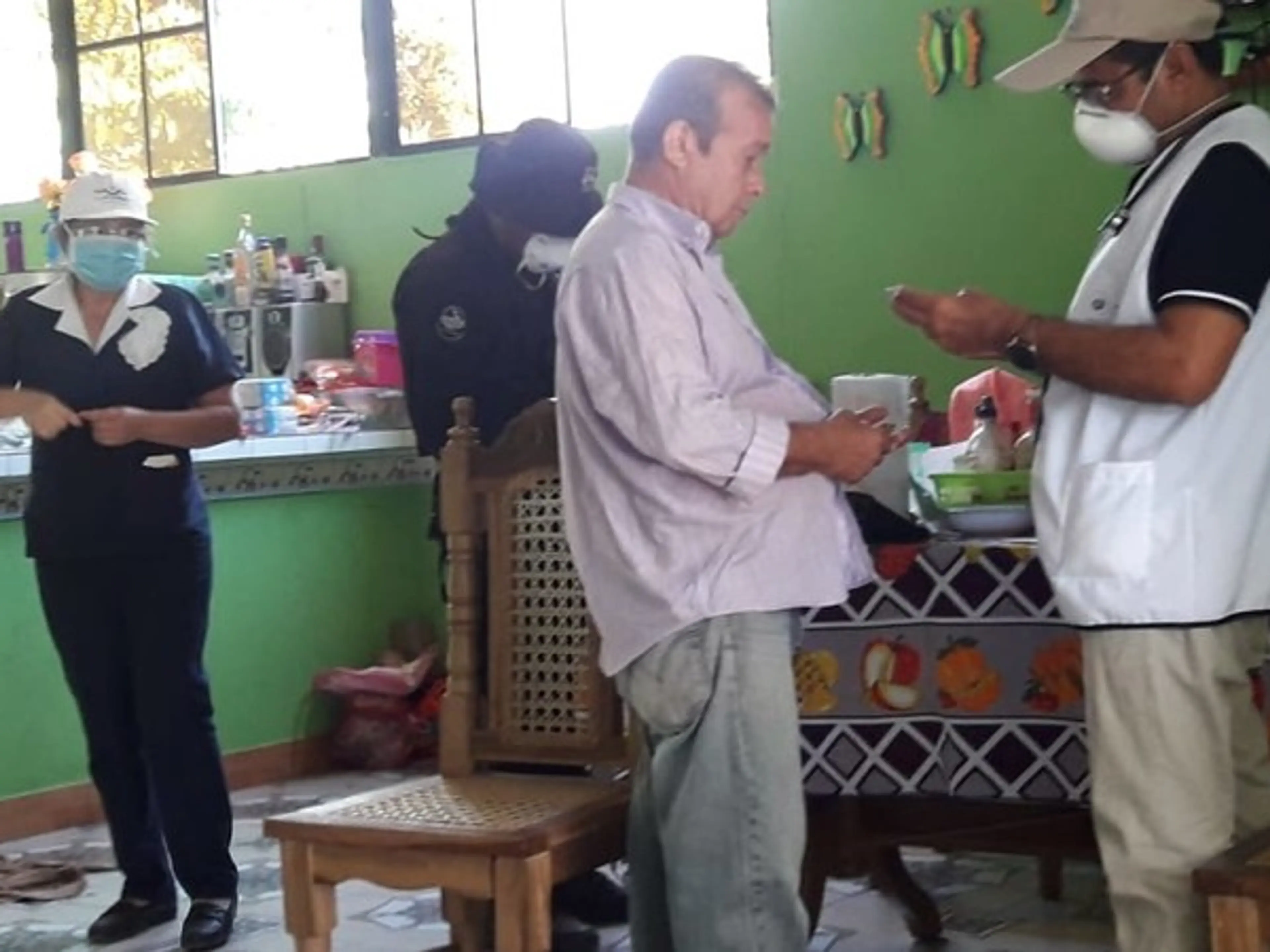
CAFOD helps to fund the Ana Manganaro clinic, a community health project based in Guarjila in rural El Salvador.
What challenges are there to surviving lockdown and fighting coronavirus?
At the beginning of July, the government declared that the health system in El Salvador is in a state of collapse.
Poor people in the cities are starving, as they depend on leaving their home to make money each day. Demonstrators have taken to the streets to protest the job losses and hunger that lockdown has caused.
A tropical storm hit El Salvador at the end of May and over 7,000 homes were lost to the heavy rains and flooding in San Salvador, the capital. Families were evacuated but are now homeless and at increased risk of catching coronavirus.
For farmers, the lockdown has meant that they have missed a planting seeds in May – a key sowing season.
How has CAFOD responded to coronavirus in El Salvador?
CAFOD has been working with the poorest communities through the local Church in El Salvador for many years. Faith leaders and groups were already providing practical help to poor families and defending their rights before the coronavirus hit.
Your donations are helping to support:
The outreach work of the Guarjila health clinic in rural El Salvador. Health workers have continued to treat pregnant women, mums and babies as usual, but have also begun safe home visits to give prevention advice, identify coronavirus sufferers and give emotional support.
Local radio stations, which are spreading life-saving messages about preventing coronavirus. Radio is very popular in El Salvador and can reach communities who can’t access news otherwise.
Women in rural communities, who are learning to create home gardens and raise chickens while under lockdown, to ensure they can earn money and feed their families.
Donate to the Coronavirus Appeal
What gives you hope?
I’ve been speaking to Omar Serrano from the University of Central America and what gives me particular hope is that so many people in El Salvador want to use the coronavirus pandemic as a catalyst for real change.
To borrow Omar’s inspirational words, “This crisis highlights the unjust ways in which we have organised society and the economy. We cannot afford to return to the "normality" of before. We must create a new normality, a normality in peace, with justice and where we recognise and guarantee what is most important for each person and each family.”
El Salvador is the smallest country in Central America - it is about the size of Wales.
Years of brutal civil war ended in 1992, but poverty, high unemployment and gang violence still make life very difficult, especially for women and young people.
We spoke to Jess Michelmore, CAFOD’s Communications Officer for Latin America, on what life is like in El Salvador, how your support is helping the local Church to fight coronavirus and why we can’t return to normal after this crisis.
Donate to the Coronavirus Appeal
What was the situation in El Salvador before coronavirus hit?
CAFOD has worked with the local Church and community groups in El Salvador since 1974. We are inspired by Saint Oscar Romero and his insistence on the need for peace, justice, equality, and respect for human rights.
Although the civil war in El Salvador ended 18 years ago, the country still faces challenges of poverty, unemployment, gang violence and inequality. Young men from the poorest communities live under constant risk of violence from gangs and the police. It is one of the most dangerous places in the world for women and sexual attacks are common. Crime, combined with few job opportunities mean that many people migrate to find work or to flee the violence.
In rural areas, farming communities are struggling to grow their crops on poor land. Climate change is causing more extreme weather with floods, droughts and tropical storms becoming more frequent. El Salvador also faces many natural hazards like earthquakes and volcanic eruptions.
How has the government responded to coronavirus?
The government has been taking a hard line against gangs by putting the army out on the streets. A similar approach is being taken with coronavirus, and the military have been enforcing strict quarantine measures.
This has led to citizens protesting on the streets. Families need to go out to find food and some protestors have been put into detention centres.
“"Poor people in the cities are starving, as they depend on leaving their home to make money each day. Demonstrators have taken to the streets to protest the job losses and hunger that lockdown has caused."”
